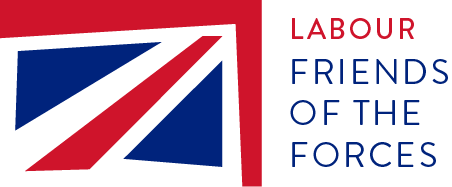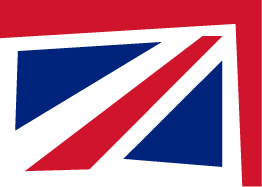Lessons from Ebola with Charlie Herbert
On 27 January 2021 Labour Friends of the Forces held our first event of the year. We were joined from Somalia by Charlie Herbert who shared some of his experiences as the military commander of the UK’s Ebola Task Force in Sierra Leone in 2015, and some observations and contrasts with the current coronavirus pandemic. This is a precis of the event and of some of my own thoughts on the subject.
Charlie had obviously prepared for the event and was kind enough to describe LFF as a “senior and cerebral” audience. He gave us a candid account of his experiences which was no less incisive or informative for being apolitical. It was inevitable that both speaker and audience would draw parallels between the UK Government’s handling of the Sierra Leone Ebola outbreak and its handling of Covid-19.
Charlie noted early on that the military’s role in humanitarian assistance and disaster relief (HADR) was perhaps not as well understood across government as he had expected. HADR isn’t a new idea: the term can be found in the 1998 Strategic Defence Review; it may be that one lesson of the deployment (and perhaps the UK response to Covid) is for a more commonly understood vocabulary across government departments.
Ebola is a viral haemorrhagic fever with a 50% fatality rate. It is though, far less contagious than other viruses, including Covid-19. Ebola is spread through direct contact with the body fluids of an infected person and through two practices common in Sierra Leone: through the washing of corpses prior to burial, and unsafe burials. The first reported Ebola case in West Africa was in Guinea in March 2014. Other cases were reported in neighbouring Liberia and Sierra Leone. A coordinated international response (remember those?) saw France, the USA and the UK take the international lead in supporting the Governments of Guinea, Liberia and Sierra Leone respectively. Once the virus reached densely populated cities like Conakry, Monrovia and Freetown it threatened to spread like a rumour on a mess deck.
The task force that deployed was combined, joint and interagency, and Charlie was rightly proud of the high degree of integration and cooperation between the different elements that were fused into a single force. The UK deployment was led by DfID, with 800 MOD personnel, supported by Irish and Canadian service personnel, plus staff from the Foreign Office and Public Health England. Charlie contrasted the high degree of cross-government integration on the operation with his previous experiences in Basra (DfID and Army HQs at different locations) and Lashkar Gah (DfID and Army HQs on the same base but working largely independently).
Charlie talked about the nature of the outreach done working with Sierra Leonean regional government. He highlighted the benefits of having officers who could ‘park’ their rank and ego in order to enhance cooperation. This approach to engagement was particularly important in communities where trust had to be established early on, especially in some areas where superstition and religion were favoured over science in healthcare.
One of the task force’s early jobs was to reconnoitre sites to build Ebola treatment centres.
In Kerry Town, a village about 30km south-east of Freetown, the MOD built an Ebola treatment centre for Save the Children and ran a separate 30-bed facility for infected healthcare workers. Additionally, the UK provided training for burial teams and ambulance drivers. Charlie drove home for his audience the three key actions that reduced the transmission of the virus: community engagement and education, focussed lockdowns, and contact tracing. Together, these lowered the rate and level of infection, leaving the task force to deal with what Charlie called the “bumpy tail” of the infection curve. This was dealt with by refining the task force’s intelligence gathering process, gaining more detail during contact tracing, and then imposing severe restrictions on movement in affected areas: villages of 800 people were quarantined for 28 days, and surrounding areas subjected to lockdowns too. While this was in Charlie’s own words quite a “medieval” approach, it worked. Charlie also highlighted the uniformly positive reaction to the sight of RFA Argus moored off Freetown. Residents saw it as a clear symbol of UK support and intent.
Throughout the question-and-answer session it was evident that Charlie was as bemused as the rest of us by the performance of the UK’s governments in dealing with Covid: surprised at how poor the testing capacity has been for most of the past 10 months, and “staggered” at how long it has taken to introduce a tracing mechanism. He’s hardly alone in this: it seems to me that even if the political leadership of the UK had a plausible strategy to deal with Covid, the majority of the UK population is only now with the start of a vaccination programme beginning to see a way out of the crisis. In Scotland, Covid strategy is held back by the governing nationalist psychosis that defines public policy success as ‘better than England’ and by the sophistry that announces successes as uniquely Scottish while blaming failure on ‘London’. Meanwhile, in England, Johnson and his bottom third Cabinet find their authority and competence compromised by their own anomie and by their adherence to the Principle of Unripe Time when decision points are reached.
The Q&A also raised the idea of a dedicated formation within the armed forces for military assistance to civil authority. Charlie’s view (and mine) is that any such unit risks being ineffective because it will inevitably not have the right capabilities in it. The benefit of the current approach is that a permanent headquarters can be allocated and organize the right capabilities for a particular request from another part of the government: flooding, terrorism, and pandemics require different amounts of different ‘stuff’. It is certainly concerning, though perhaps not indictable, that the institutional resilience and surge capacity in the rest of the public sector is so small that the MOD’s humanitarian assistance and disaster relief capabilities are being used to support local government and the NHS. In parallel with rightly praising ‘the troops’ for their work, Labour should be asking some pointed questions about the condition of public administration and institutional resilience across the UK. Defence ministers should also be more open about what other tasks and training have been deferred or lost as a result of the MOD’s support to tackling Covid, and about how much of the Armed Forces are currently committed.
Toby Dickinson, LFF Treasurer

